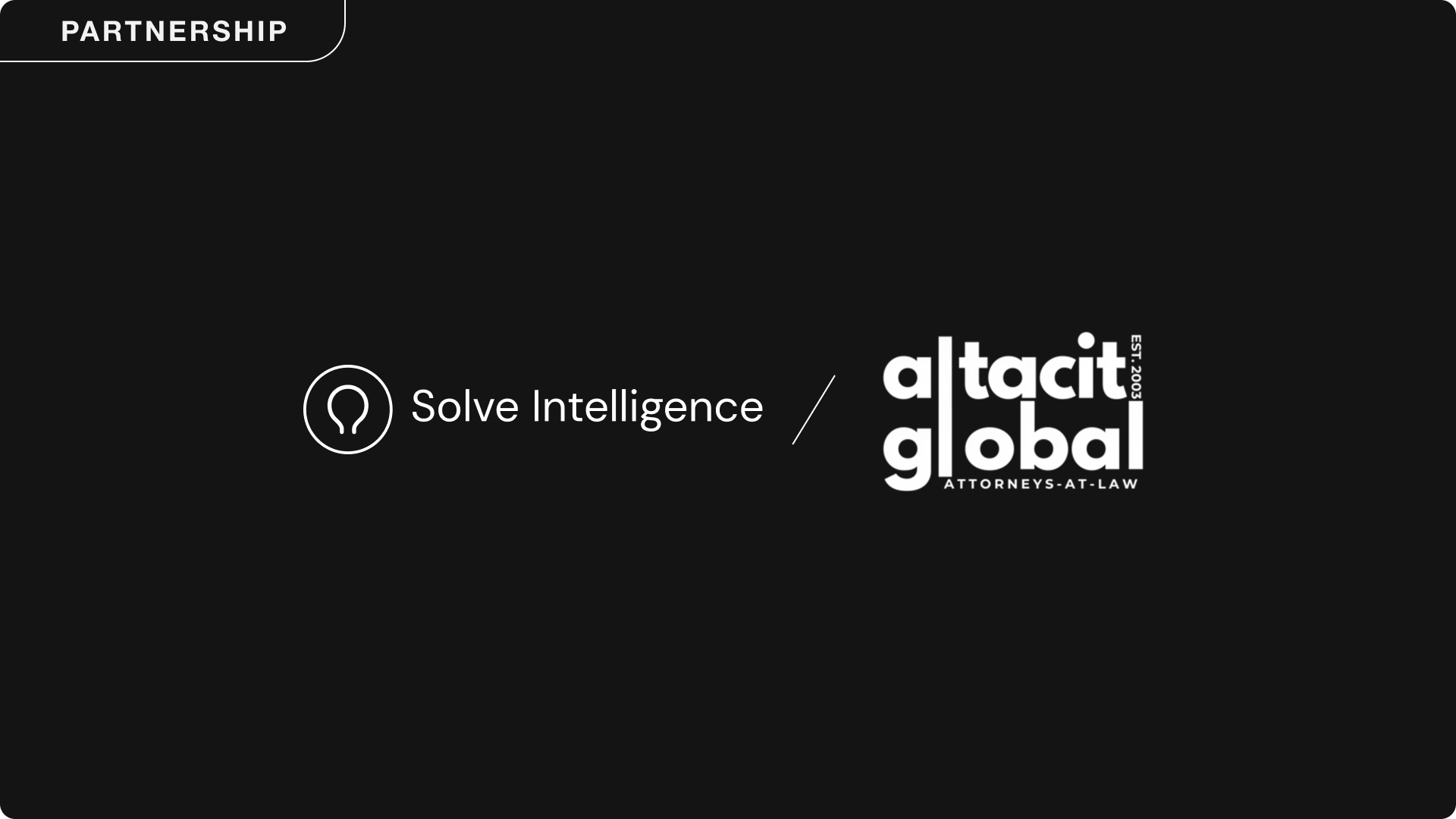How to Leverage Your Patent Prosecution Work with AI
The world of patent prosecution is undergoing a transformative shift, with artificial intelligence (AI) becoming a key player in streamlining and enhancing the prosecution process. Patent professionals—attorneys, agents, and paralegals—can leverage AI to improve efficiency, accuracy, and overall productivity. In this article, we’ll explore the role of AI in patent prosecution, how AI-assisted workflows can boost efficiency, and the challenges and ethical considerations that come with adopting AI solutions in this space.

The Role of AI in Modern Patent Prosecution
AI is revolutionizing many industries, and patent prosecution is no exception. By using AI prosecution assistants, patent professionals can manage and execute tasks that would traditionally require significant time and resources. These tools assist with a variety of aspects in the patent prosecution process, such as drafting applications, analyzing trends, and identifying examiner behaviors, enabling practitioners to make data-driven decisions with greater confidence.
One of the biggest advantages of AI in patent prosecution is its ability to process large amounts of information quickly. AI-powered tools have the ability to evaluate vast amounts of patent data, case law, and prior decisions to identify patterns that would take a human expert days or weeks to uncover. This technology allows patent professionals to make informed strategic decisions faster, thus increasing the chances of success when prosecuting patents.
AI patent prosecution tools also assist in improving the drafting of patent applications. In the past, drafting patent claims required painstaking manual effort, and human error could lead to costly mistakes. AI-assisted drafting systems can automatically generate claims, technical descriptions, and other sections of patent applications by analyzing existing patents and identifying relevant language. These tools help ensure accuracy, precision, and compliance with the evolving legal standards in patent prosecution.
Additionally, AI tools are capable of predictive analytics, which can forecast outcomes based on historical data. By analyzing examiner behavior and trends in similar cases, AI can offer insights into how an examiner might approach a given application. This allows attorneys to adjust their strategies and responses proactively, improving the likelihood of a positive outcome for their clients.
Enhancing Patent Prosecution Efficiency Through AI-Assisted Workflows
Efficiency is critical in patent prosecution. Attorneys and firms are under constant pressure to manage large volumes of cases, meet tight deadlines, and reduce costs—all while ensuring that the patent prosecution process is thorough and accurate. AI-assisted workflows provide an opportunity to enhance efficiency without compromising quality.
AI-Assisted Drafting and Review
Drafting patent applications has traditionally been a time-consuming process. With AI patent prosecution tools, the drafting process is accelerated significantly. AI algorithms can automatically draft sections of the patent application by analyzing existing patents and technical documents, ensuring that the language is both precise and consistent with industry standards. This reduces the likelihood of mistakes and speeds up the application process.
Moreover, AI can assist in the review process by identifying any inconsistencies or potential vulnerabilities in the language used. Whether it's claim language or the technical description, AI helps detect possible ambiguities, strengthening the application before it’s submitted. This is crucial in minimizing the back-and-forth correspondence between the applicant and the patent office, ultimately reducing the total time it takes to secure patent protection.
Predictive Analytics in Patent Prosecution
One of the standout features of AI patent prosecution tools is their predictive capabilities. These tools can analyze historical data, such as past patent decisions and examiner tendencies, to forecast the likelihood of success for a patent application.
Predictive analytics allows patent professionals to gain deeper insights into how a particular examiner may respond to their application. For example, AI might reveal that a specific examiner tends to reject claims based on particular legal precedents, allowing attorneys to revise their applications or arguments preemptively. This data-driven approach can reduce the likelihood of office actions and rejections, thus speeding up the entire prosecution process.
In addition, AI can help patent professionals prioritize cases based on expected outcomes. By understanding which cases are likely to encounter fewer challenges, attorneys can focus their attention on more complex or uncertain applications, leading to more efficient resource allocation and improved overall productivity.
Case Management and Workflow Automation
AI-powered case management systems offer a major improvement in organizing and tracking the numerous steps involved in patent prosecution. These systems automate administrative tasks such as deadline tracking, document management, and status updates, ensuring that nothing falls through the cracks.
This type of workflow automation helps reduce human error in managing large patent portfolios, where missing a deadline or filing an incomplete response can result in delays or even the loss of patent rights. AI prosecution assistants can monitor the entire process, sending reminders, flagging issues, and providing a clear overview of each case’s status, so that attorneys and agents can focus on high-priority work without worrying about administrative details.
Challenges and Ethical Considerations of AI in Patent Prosecution
While AI holds the potential to enhance the practice of patent prosecution, it’s important to recognize the challenges and ethical implications that come with integrating this technology into legal practice.
Accuracy and Dependence on AI
One of the primary concerns regarding the use of AI in patent prosecution is the potential for over-reliance on technology. Although AI prosecution assistants can process and analyze vast amounts of data quickly, they are not infallible. AI tools are only as good as the datasets they’re trained on, meaning that errors in the training data can lead to inaccurate or incomplete insights.
Patent professionals must remain vigilant and avoid over-dependence on AI-generated outputs. While AI can offer valuable recommendations, human expertise is still essential in reviewing, interpreting, and validating the results provided by these systems. An attorney’s legal judgment and strategic thinking remain irreplaceable, particularly in complex cases where nuanced understanding is required.
Bias in AI Systems
Another significant challenge is the potential for bias in AI systems. AI algorithms learn from historical data, and if that data is skewed or biased, the AI will reflect those biases in its outputs. In patent prosecution, this could mean that AI tools may favor certain technologies or industries over others, potentially leading to inequities in the prosecution process.
Here at Solve Intelligence, we are committed to building AI-powered platforms that assist with every aspect of the patenting process while keeping patent professionals at the helm of these powerful tools. In this way, we give patent practitioners the control needed to reap AI's benefits while mitigating its associated challenges. Our Patent Copilot™ helps with patent drafting, patent filing, patent prosecution, office action analysis, patent portfolio strategy and management, and future patent infringement analyses. At each stage, our Patent Copilot™ works with the patent professional, keeping them in the driving seat, thereby equipping legal professionals, law firms, companies, and inventors with the tools to help develop the full scope of protection for their inventions.
AI for patents.
Be 50%+ more productive. Join thousands of legal professionals around the World using Solve’s Patent Copilot™ for drafting, prosecution, invention harvesting, and more.

.png)


